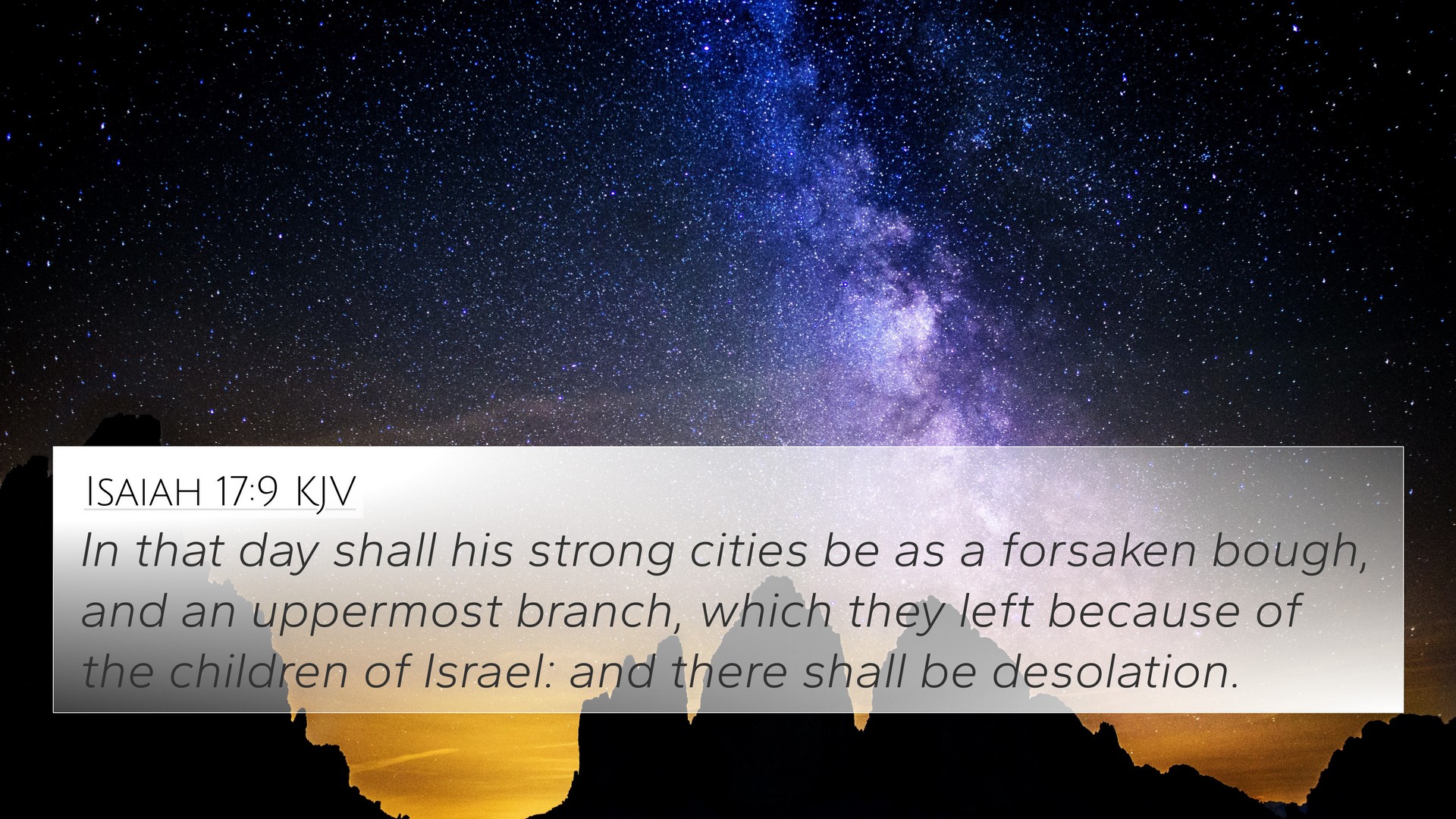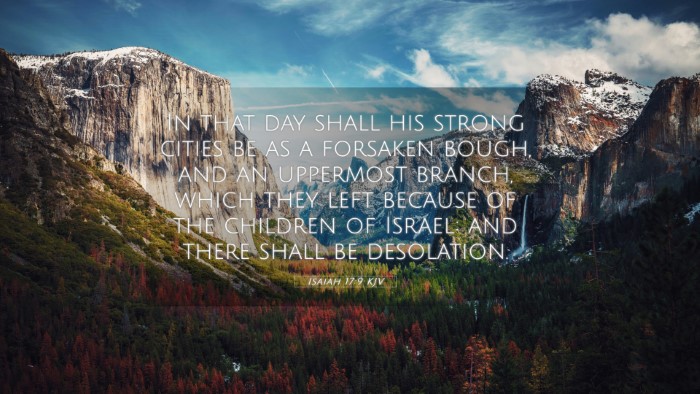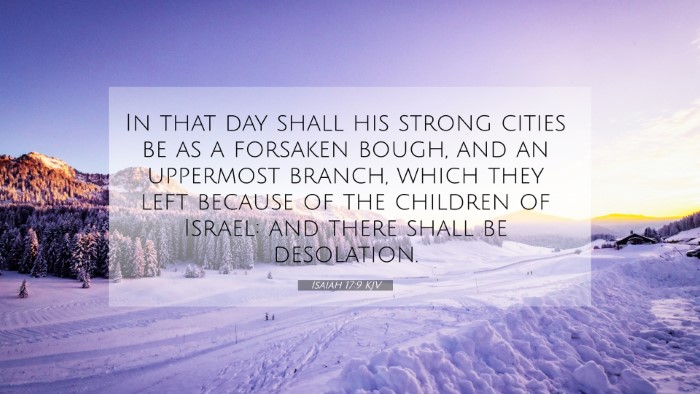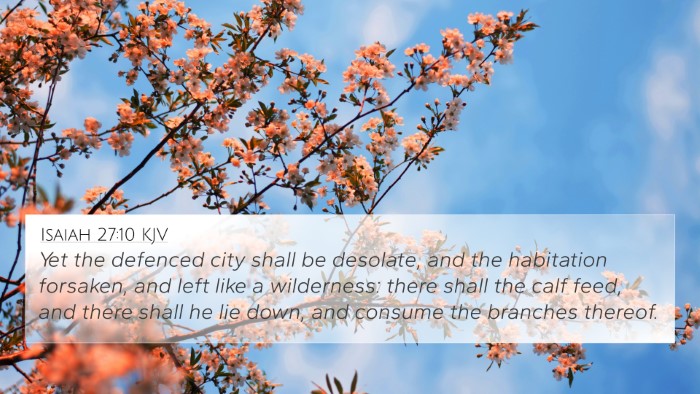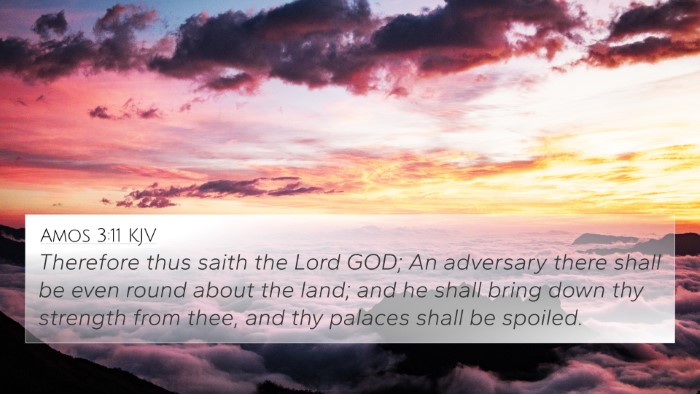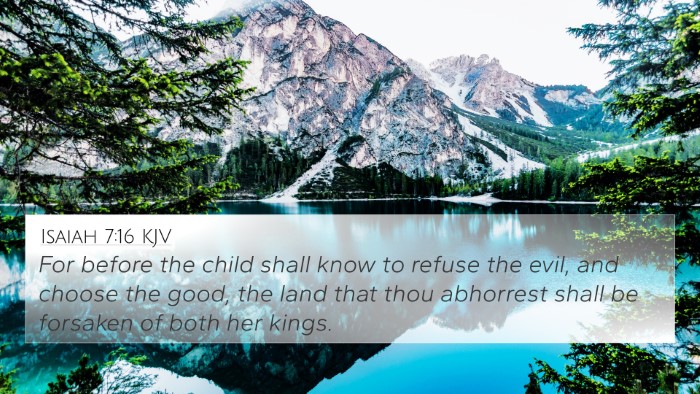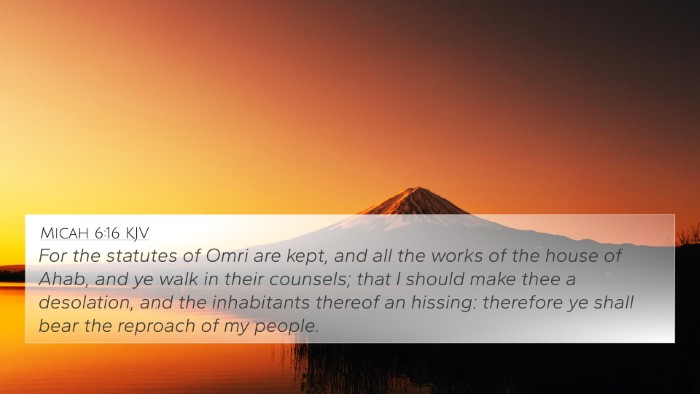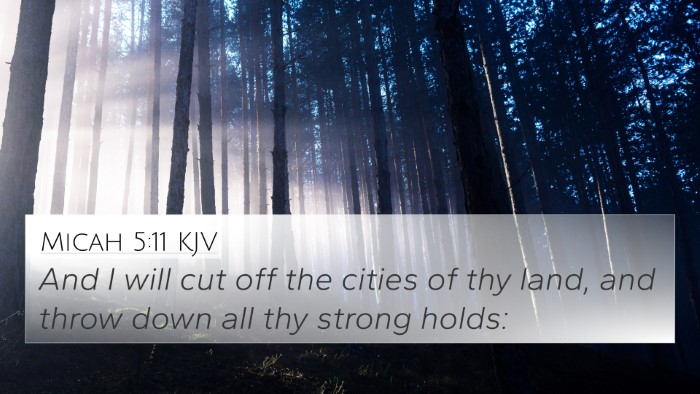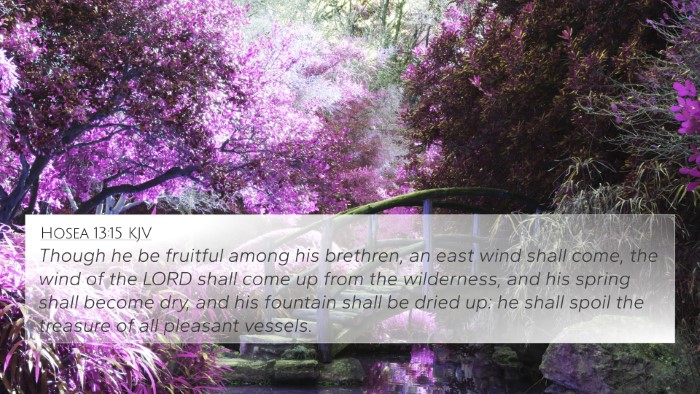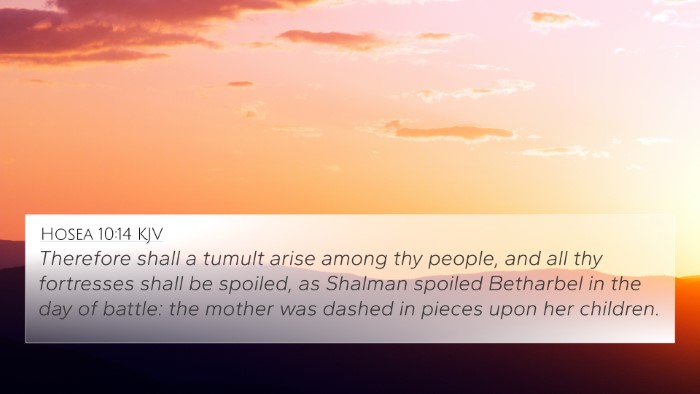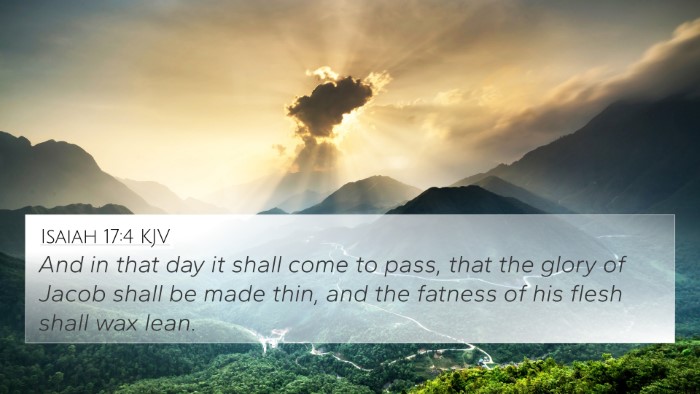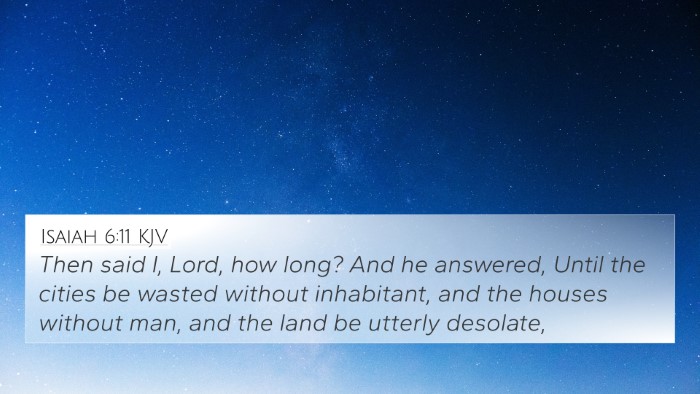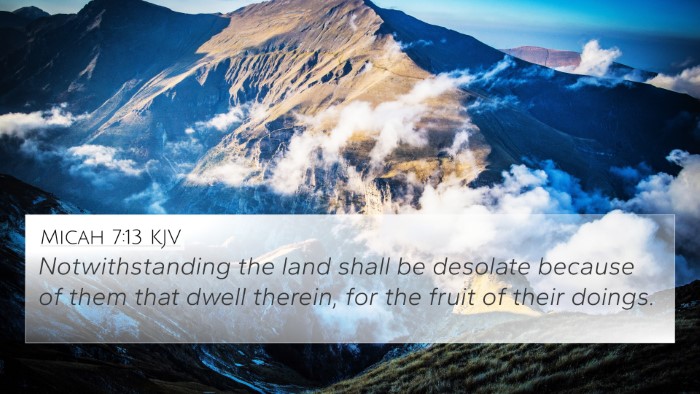Understanding Isaiah 17:9
Isaiah 17:9 reads: "In that day their strong cities will be like a forsaken place on an agricultural field, which they abandoned because of the children of Israel; and there will be desolation."
This verse reflects the consequences of Israel's sins and the impending judgment from God on the nations around them, particularly focusing on the fate of Damascus and the cities associated with it.
Meaning and Context
The context of Isaiah 17:9 is critical to understanding its depth. Isaiah prophesies during a tumultuous time when the Northern Kingdom of Israel was facing destruction and the surrounding nations were implicated in their downfall.
Insights from Commentaries
-
Matthew Henry:
Henry explains that the mention of “strong cities” indicates both the physical might and the false security that these cities provided. The forsaking of these cities links directly to the abandonment of their idols and the futility of trusting in human strength.
-
Albert Barnes:
Barnes focuses on the theme of judgment and the certainty of divine retribution. He underscores how the “forsaken place” symbolizes not merely physical destruction but also a spiritual and moral abandonment, emphasizing God's sovereign control over nations.
-
Adam Clarke:
Clarke provides a historical perspective, noting how the cities referenced would face desolation due to the invading forces. His analysis includes the agricultural analogy, implying that just as a field left uncultivated leads to decay, so do forsaken cities lead to desolate spiritual states.
Thematic Connections
The themes within Isaiah 17:9 resonate through various parts of Scripture, emphasizing judgment, desolation, and the security found in God.
Cross Reference Analysis
- Jeremiah 9:11: "And I will make Jerusalem heaps, a den of jackals, and I will make the cities of Judah desolate, without inhabitant." - This correlates with the desolation prophesied in Isaiah, showcasing a common theme of judgment.
- Micah 3:12: "Therefore because of you, Zion shall be plowed like a field, Jerusalem shall become a heap of ruins, and the mountain of the house a wooded height." - Similar imagery of desolation links back to God’s judgment.
- Lamentations 1:1: "How lonely sits the city that was full of people!" - This verse reflects the consequence of forsaking God, paralleling the desolation in Isaiah.
- Hosea 10:8: "The high places of Aven, the sin of Israel, shall be destroyed; thorn and thistle shall grow up on their altars..." - It highlights the devastation that sin brings and connects to the utter ruin expressed in Isaiah.
- Isaiah 10:33-34: "Behold, the Lord, the Lord of hosts, will lop the boughs with terrifying power; the great in height will be hewn down, and the lofty will be brought low." - This reflects the judgment from God upon the mighty cities.
- Isaiah 5:25: "Therefore the anger of the Lord was kindled against his people, and he stretched out his hand against them and struck them." - This serves as a dire warning of God's reaction to sin, found in the backdrop of Isaiah’s prophetic words.
- Ezekiel 6:6: "In all your dwelling places the cities shall be laid waste, and the high places shall be desolate..." - A direct warning of desolation appears here as well, emphasizing the theme in Isaiah.
- Zephaniah 1:4-6: "I will stretch out my hand against Judah and against all the inhabitants of Jerusalem; and I will cut off from this place the remnant of Baal..." - This continues the thematic approach of divine judgment against idolatry.
- Revelation 18:21: "Then a mighty angel took up a stone like a great millstone and threw it into the sea, saying, 'So will Babylon the great city be thrown down with violence...'" - Indicates the finality of judgment which reflects earlier warnings from the prophets, including Isaiah.
In Summary, Isaiah 17:9 serves as a potent reminder of the inevitable consequences of abandoning faith and turning to human strength. The strong cities that once stood with pride become symbols of forsaken hopes, serving as a prophetic warning that resonates throughout the scriptures. Understanding this verse within the broader biblical narrative allows for a richer understanding of God's character, judgment, and the hope of restoration that is conveyed through other related texts.
Tools for Further Study
For those interested in deepening their understanding of scripture and its interconnectedness, several tools can facilitate comprehensive Bible verse analysis:
- Bible concordance: Helps find specific words and understand their occurrences throughout the scripture.
- Bible cross-reference guide: Provides direct links between verses that discuss similar themes or events.
- Cross-reference Bible study: Groups verses to allow readers to draw thematic conclusions.
- Comprehensive Bible cross-reference materials: These resources are invaluable for exploring the multitude of connections across the biblical text.
- Bible chain references: A method of linking verses together for sermon preparation or study.
- Identifying connections between Old and New Testament: This approach unveils the continuity of God’s revelation across scripture.
Practical Application
Understanding Isaiah 17:9 and its implications can lead to reflective insights about reliance on God versus self-sufficiency. Believers can apply this message to their own lives, recognizing the importance of spiritual integrity and the dangers of spiritual desolation. Ultimately, the interconnectedness of biblical themes helps believers grasp the magnitude of God’s word in their journey of faith.
